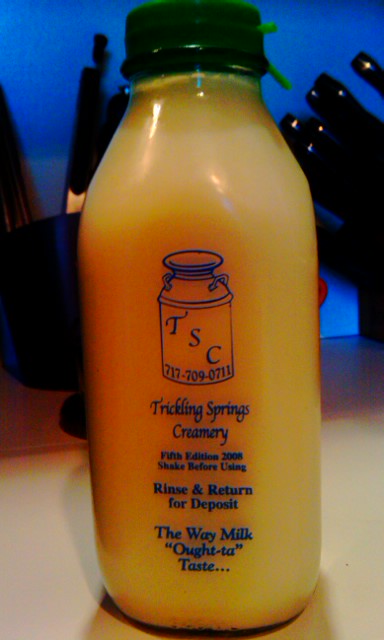A Mennonite man from southeastern Pennsylvania cheated Amish and Mennonite investors out of nearly 60 million dollars, according to an article in the Washington Post. Philip E. Riehl faces federal charges for securities fraud and conspiracy.

Riehl was the majority owner of the Trickling Springs Creamery, an organic dairy business in Chambersburg that abruptly shut its doors in September last year. The story in the Post provides a detailed account of the fraudulent aspects of the business and of an investment fund he founded for the members of the Amish and Mennonite communities, the Riehl Investment Program. The people who trusted him and invested their savings in the creamery or directly in the fund may have lost it all.
He supposedly told his investors that the creamery was a successful business and that his fund was profitable. But operations at the creamery were losing money and were being supported by investors’ money. Federal prosecutors said that the fund was “plagued by defaults and uncollectable debts.”

The lengthy Post article chronicles the lies and deceptions that Riehl was using and his fraudulent ways of getting funds from his religious community—Mennonites and Amish who trusted his expertise. The reporter quotes from an SEC document about the swindler’s exploitative methods of getting money: “Riehl knew that members of his religious community had a high level of trust and respect for one another, and he relied on this trust to secure investments.” Riehl and his three associates have been excommunicated from their Mennonite churches.
According to another news report on the Ponzi scheme, he did write a letter of apology in 2019 to the people who had trusted him with their funds. The details about the various federal and state charges against Riehl are not as important as the basic story: he violated the trust of the Amish and Mennonites in Pennsylvania. Many of them may be traditional enough to believe in the old saying about how one bad apple can spoil a whole basket. At the least, the proverbial bad apple can color the perception of the rest of the crop by the general public.